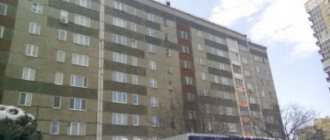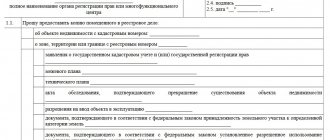Where to call if a pipe burst in your apartment
If you find a leaking pipe, hurry up and ask a plumber, whom the house management organization (DUK) must send. You should also go there if the pipe has already burst.
You can find information about which company services a specific address via the Internet, you can also look at advertisements at the entrance or see its name on the rent receipt. It is better to keep such numbers at hand, specifying them in advance. You can contact management specialists on weekdays during business hours. Most often they also have some kind of emergency number that is available 24 hours a day.
If a leak occurs when the DUK is not working, you need to call either its emergency dispatcher or the emergency repair service in the city.
The dispatcher will contact specialists and send them to the scene of the incident. You must understand that such actions can only be resorted to if the pipe is leaking so badly that it is impossible to cope with the problem on your own.
When troubleshooting a problem in the apartment, the owner of the property will have to pay for the work of specialists.
What to do if a hot or cold water pipe bursts
If a leak occurs in pipes with cold or hot water, you should contact the employees of the Management Company or DEZ . They will send plumbers, and if the damage is serious, they will contact the emergency services themselves. If it is after hours, immediately dial the Vodokanal repair service number. The dispatcher will send specialists to you. After eliminating the accident, ask to draw up a report indicating the location of the leak and the cause of the problem.
Residents often get confused and don’t know what to do to prevent water from flooding all the lower floors . When a pipe bursts and water arrives quickly, the actions fit into the following scheme:
- Turn off the electricity supply to the room.
- Shut off the common riser or discharge pipes in the apartment.
- Report the leak to the emergency dispatcher or management company employees.
It is easier to fight a flood with helpers. While one person calls the specialists, the rest scoop out the accumulated water, preventing it from leaking to the lower floors.
Where to go if your sewer breaks
The unpleasant “aroma” of sewage drains appears not only in old houses where the pipes have already worn out, but also in new high-rise buildings. In the latter case, the cause is errors in system installation. If you notice a sewer smell, you should first check your communications. This is especially true for apartment owners who carried out redevelopment and changed the location of plumbing fixtures. Often after this, stagnation forms in the drain pipes, which is the cause of the stench.
If you are sure that the sewer system has broken in the basement, you need to notify the utility company about this. At the same time, you should not write a collective statement; it requires a longer consideration. The complaint must be submitted in writing, requiring mandatory registration.
The management company is obliged to take care of eliminating the leak. If necessary, utility workers clean and disinfect the premises.
In the event that a sewerage break occurs on the street, the emergency utility service must be responsible for its elimination. On weekdays, the incident must be reported to the emergency department or management company that services the site. If the accident occurred on a weekend or after hours, you should contact the city emergency service dispatcher.
If the leak is in your apartment, also contact the company that manages the utilities in your home or call an independent plumber.
How to behave, where to go
Remember! When a pipe burst occurs in an apartment or house, you must immediately call the housing office servicing the house and report the accident. When a breakthrough occurs at night, you should call the emergency service.
It is better to find out the telephone numbers of these organizations in advance. Flooding must be recorded. As a rule, this is done by a special commission that draws up an act. When flooding occurs at night, you need to take photos or video everything.
Such materials will not only confirm that an accident occurred, but will also serve as evidence if you need to go to court.
When the accident is eliminated, a special commission must visit the accident site, whose powers include drawing up a flood report. After drawing up the act, the interested person can contact an independent expert who will study the compiled information and calculate the amount of damage caused to the property.
ATTENTION! Look at the completed sample report on the consequences of apartment flooding:
If the heating pipe is leaking
If a heating pipe bursts in an apartment, use all available absorbent means: rags, sponges. Be careful, the temperature of the liquid is high enough to cause burns. A rag wrapped around the pipe will help reduce the water pressure. It is urgent to call the emergency service of the Vodokanal branch.
The arriving specialists will shut down the heating system in the house. Before they arrive, take measures to avoid flooding your neighbors or at least minimize the consequences of a leak. Open the windows to lower the coolant temperature.
Who pays for damages in the event of a heating system failure?
Citizens living in the apartment are responsible for accidents that occur on the territory of the apartment. However, when radiators and heating pipes burst, the culprit may be improper pressure distribution in the system. Often, the court on the question of who is to blame for the accident takes the side of the residents. This can happen even if the case falls within the boundaries given in the LC. Utility workers will also be found guilty if DUK specialists carried out repairs, but the installation was performed poorly and the radiator leaked.
It should be taken into account that if residents independently replaced the heating battery or supply pipes, then responsibility for the accident will fall entirely on them.
Who pays for damage if a vertical water pipe breaks?
The situation when a leaking riser causes a flood in an apartment is very unpleasant. But it’s even more difficult if the apartments located below were damaged due to the accident. Neighbors have the right to demand compensation for damage, and it often amounts to a considerable amount. However, the owners of the apartment are not always to blame for the accident. The Housing Code clearly defines who is responsible for an accident. If the section of pipe up to the shut-off device fails, the HOA or the management company are considered to be the culprits. In other cases, the owners of the apartment bear responsibility for the damage caused. They are also required to monitor the health of the system and promptly report problems.
Municipal apartment
A municipal apartment is and will remain the property of the state. It is impossible to rent out, exchange or sell such housing, therefore, the people living in it take upon themselves the resolution of issues related to the repair of the heating system. But complete reinstallation of pipes is not the responsibility of the residents.
This is done directly by the owner, namely, the housing and communal trust. Such repairs are considered capital repairs, therefore, the management company undertakes to finance all costs.
IMPORTANT! In the event of a breakthrough, the company is obliged to record in writing the cause of the problem and the resulting damage.
Who is to blame if neighbors are injured due to a pipe leak?
In a non-privatized, municipal apartment
Government decree number 491, which defines the rules for maintaining common property, states that maintenance and repair of the water supply system is carried out at the expense of residents. As for the replacement of pipes, it is carried out during the renovation of the entire building. Funds for this are allocated from voluntary contributions made by residents. This is also stated in Article 67 of the RF Housing Code.
Responsibility for the proper operation of the water supply and sewerage lies with the HOA. Utility workers are required to regularly check equipment and, if necessary, repair or replace it. However, it must be taken into account that if a leak occurs on the territory of the apartment, its residents will have to pay for the damage, even if they are not the owners.
If your upstairs neighbors flooded you and there are facts confirming their negligence, you should demand compensation for damage from them.
In a privatized apartment
Homeowners, as well as citizens living under a social tenancy agreement, are required to pay utility bills. The technical serviceability of the sewerage, water supply and heating systems is monitored either by special organizations with which the HOA has entered into a contract, or by the management company. Planned replacement of equipment is carried out during major repairs, at the expense of paid contributions. If the apartment owner wishes to replace the pipes ahead of schedule, this will have to be done at his own expense.
Both in the case of municipal housing and in privatized apartments, employees of housing maintenance offices are required to regularly check equipment. Residents are notified of such events in advance. After the inspection, the owner or tenant signs the inspection report. Residents who interfere with the inspection of technical systems are found guilty if a riser burst or a pipe burst in their apartment .
If a common riser fails, residents need to record this fact, draw up an individual (or collective) statement, accompanying it with photos or video materials. The latter is not necessary, but desirable. The application is handed over to the employees of the housing office, keeping a copy for yourself. It may be useful when going to court.
Where to go if the apartment is owned by a housing cooperative
Housing cooperative is a group of private owners who are owners of property on the basis of equity participation. To put it simply, residents of cooperative houses, as well as residents of municipal high-rise buildings, have to pay for the maintenance and repair of the local area and common property.
Until the full payment of the cost of the cooperative apartment, its owner is the housing cooperative. After repayment of all contributions, the living space becomes the property of the shareholder. The organization of maintenance of such residential properties is no different from municipal buildings. Maintenance is carried out by the association of owners of cooperative housing (HOA) through an agreement with the Management Company, or independently. In some cooperatives, management is carried out by housing cooperatives. But most often they do not carry out any work on their own, but only enter into an agreement with the management company.
Hired specialists are required to carry out routine and scheduled repairs of equipment in cooperative houses. But the residents of the cooperative building will have to pay for it out of their own pockets.
As Art. 110 clause 2 of the Housing Code of the Russian Federation, owners of cooperative housing participate in the maintenance of the house. If a pipe burst occurs on the territory of an apartment, its owner is recognized as the culprit.
Who is responsible for pipes, risers, sewerage in an apartment building?
Based on paragraph 5 of the Decree of the Government of the Russian Federation dated August 13, 2006 N 491, the common property in an apartment building (hereinafter referred to as MKD) includes engineering systems for hot and cold water supply, which consist of drains and branches from the risers to the first disconnecting device located on the branches from risers, to the first shut-off and control valves on the branches of the intra-apartment wiring from the risers.
That is, the riser is common property, the outlet from the riser is also common property and is considered common until the first shut-off element, that is, for example, if you have a tap in front of the battery, then after this tap the property belongs to you, and before it, the pipe is considered common property of the apartment building.
Based on paragraph 1 of Article 39 of the Housing Code of the Russian Federation, the owners of premises in an apartment building bear the burden of expenses for the maintenance of common property, that is, you, as the owner of a residential premises, bear the costs of maintaining the common property in an apartment building, but are not responsible for it.
In the Decree of the Government of the Russian Federation of August 13, 2006 N 491, there is paragraph 42, on the basis of this paragraph, management organizations, or other persons providing services and performing work in the direct management of an apartment building (MKD), are responsible to the owners of the premises for violation of their obligations, as well as are also responsible for the proper maintenance of common property.
In Part 2 of the Decree of the Government of the Russian Federation of August 13, 2006 N 491, there is paragraph 10 which states that common property must be maintained in accordance with legal requirements and in a condition that ensures compliance with the reliability and safety characteristics of apartment buildings, common property must be safe for life and health of citizens, do not pose a threat to the property of individuals and legal entities, and engineering communications must be in constant readiness to provide public services to citizens living in the apartment building.
Based on paragraph 13 of the Decree of the Government of the Russian Federation of August 13, 2006 N 491, inspections of common property in apartment buildings are carried out by persons attracted by the owners of the premises on the basis of an agreement, and this can be either a management organization, or an HOA, or a housing cooperative. Any of the above organizations, if the owners of premises in an apartment building have concluded an agreement with these organizations for the maintenance of your home, is responsible for the proper maintenance of the common property in the apartment building.
It turns out that if a pipe break occurred in the area of responsibility of the management organization or HOA, then it is not the owner, but the management organization, who should bear responsibility and compensate for the damage.
But in practice, the management organization always tries to relieve itself of responsibility and shift it onto the shoulders of the owner of the residential premises, and I want to tell you how to act in a situation when a pipe bursts and drowns your apartment and neighbors, and how in such a situation you can get money for the damage.
Who should I complain to about the inaction of utility companies?
It is no secret that employees of DUKs or DEZs do not always respond to residents’ complaints in a timely manner. Meanwhile, their main responsibility is to create a comfortable living environment for residents in the entrusted territory. It is their work that citizens pay for on a monthly basis using housing and communal services receipts. Since utility companies are service providers, Rospotrebnadzor is responsible for monitoring the quality of their provision. The owner of the property also monitors the work of the DUK. If the company does not fulfill its obligations, he has the right to refuse its services.
Who is guilty?
In the event of an accident, it is necessary to identify the culprit. If a riser breaks, responsibility may be assigned to:
- to the owner;
- to the employer;
- to the management company.
Owner's responsibility
Expert opinion
Stanislav Evseev
Lawyer. Experience 12 years. Specialization: civil, family, inheritance law.
In accordance with Art. 30 of the Housing Code of the Russian Federation, the owner of the property must maintain the apartment in proper condition. He must carry out major and current repairs of electrical networks, sewerage systems, water supply and heating.
Untimely replacement of pipes, refusal to carry out repairs, as well as obstruction of management company employees in carrying out repairs inside the apartment is mismanagement.
Thus, if any violations are detected on the riser (leaks, drips, gets wet), it is necessary to notify the management company employees in a timely manner.
The fact of the message must be recorded in the call log of the management company dispatcher.
Responsibility for a riser break lies with the owner in the following cases:
- the owner knew about the violation, but did not take measures to repair it;
- the owner of the apartment refused the repairs proposed by the management company;
- the owner did not provide the management company’s employees with access to the residential premises.
In this case, the court finds the apartment owner guilty of breaking the riser. However, each fact must be officially recorded.
Example . Galina went to court to recover damages from Victor, her upstairs neighbor. During the process, it was determined that the cause of the flooding was a broken riser. Victor stated that the management company was to blame for the breakthrough. A representative of the management company explained that information about the dilapidation of the riser had been available for a long time. They warned Victor about the need for repairs. The man repeatedly asked to replace the riser. However, Galina created obstacles and did not allow mechanics into the apartment to carry out repairs. The facts have been documented. Therefore, the court rejected the claim.
Tenants' liability
Separately, it is necessary to consider the situation when the riser burst in an apartment that is being rented.
Liability for damages is divided as follows:
- if housing is rented without a contract, the lessor bears responsibility;
- if the apartment is rented out under a contract, then responsibility can be assigned to the tenant, the landlord or the management company.
The employer is responsible if the contract is concluded for a long time. Moreover, at the time of the accident, the citizen must have lived in the premises for more than one year. In addition, the contract must contain the employer's obligation to carry out repairs.
Responsibility of the management company
Art. 18 Federal Law No. 189 dated December 24, 2004, the local government body selects a management company through an open competition. This management method is used if residents have not exercised the right to create an HOA.
The owners had the right to file a complaint and refuse the company’s services, create an HOA, or choose another management company.
The management company is responsible for the common property.
| No. | Rules for the distribution of responsibility in relation to risers |
| 1 | Until the first shut-off valve, responsibility rests with the management company (Government Decree No. 491 of 08/13/2006) |
| 2 | The owner is responsible for other communications located in the apartment |
The management company can avoid liability if it proves that specialists took measures to carry out repairs, and residents prevented the replacement of communications.
Example. Veronica filed a claim for damages. The upstairs neighbor, Ilya, had a riser burst. Ilya explained that he had repeatedly contacted the management company with a request to replace the riser. This fact was confirmed by extracts from the dispatcher's log. A representative of the management company explained that a mechanic came to Ilya, but for repairs it was necessary to change the entire riser. When contacting Veronica, her mother opened the door and forbade her to carry out repairs. The locksmith did not refuse the woman's request. The court identified the Criminal Code as the plaintiff. The funds were recovered from the organization.











